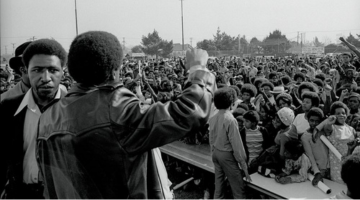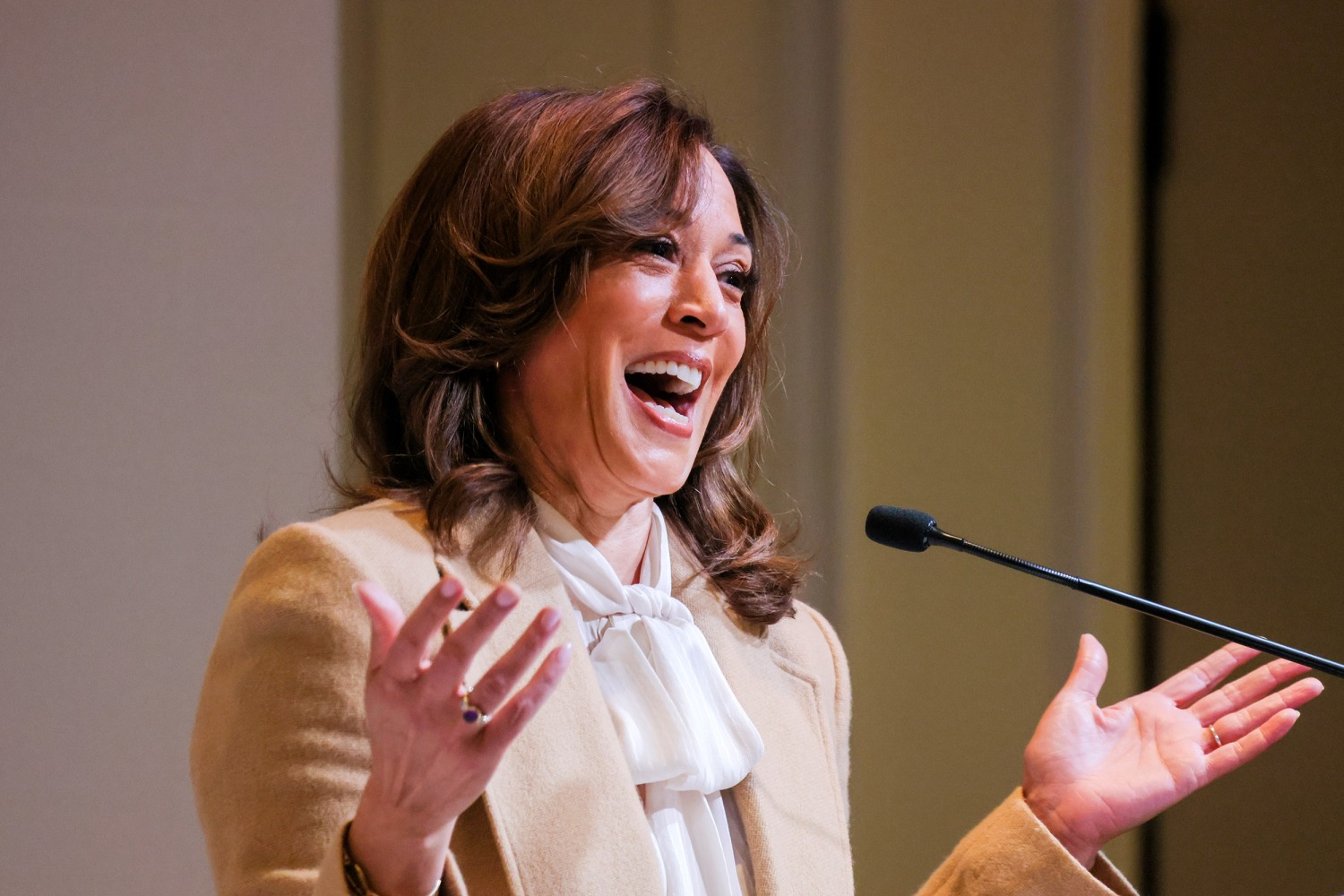- BlackVoter.Org
- Posts
- BlackVoter.Org
BlackVoter.Org


In her incisive article, Margaret Kimberley critiques Rev. Graylan Hagler's recent defenses of the Democratic Party, particularly following their failure in the 2024 elections.
She argues that Hagler's narrative reflects a troubling capitulation, urging Black voters to support a party that has historically disregarded their needs. Highlighting the disconnect between the Democratic leadership and the electorate, Kimberley points out how figures like Kamala Harris and Hakeem Jeffries perpetuate a system that fails to address issues such as police violence and economic disparity.
Instead of offering a genuine critique of the Democratic Party’s shortcomings, Hagler blames external factors, dismissing the legitimate discontent from Black voters who feel sidelined. Kimberley advocates for a more honest political discourse, emphasizing the need for active resistance and the formation of movements that genuinely reflect the needs and desires of marginalized communities.
Ultimately, she calls for a critical reevaluation of the Democratic establishment, which she views as complicit in systemic injustices.


In a recent New York Times article, seven Americans share their thoughts on the first 100 days of President Trump’s second term, revealing a tapestry of opinions. While the administration has rolled out significant tariffs, tightened immigration policies, and reduced government jobs, voters are left weighing the impacts.
Jaime Escobar Jr., mayor of Roma, Texas, remains cautiously optimistic, asserting he doesn’t regret his vote despite concerns about how tariffs could affect local industrial development.
Many respondents express feelings of chaos surrounding the new policies, with a majority labeling the early months as “chaotic” and “scary.” Yet, even amid uncertainty, there’s a sense of hope for progress on key issues such as immigration and the economy.
As America navigates these tumultuous waters, the voters’ diverse sentiments highlight the complexities of political loyalty and the balancing act between optimism and apprehension.

Civil rights leaders have launched a vigorous campaign to defend the National Museum of African American History and Culture amid perceived threats from the Trump administration to suppress Black history. The movement kicks off with a week of action culminating in a march to the museum, deemed the "crown jewel" of the Smithsonian network.
Activists, including Kimberlé Crenshaw, argue that recent executive orders targeting diversity and inclusion are deliberate attempts to erase Black narratives from America's historical record. The campaign emphasizes the vital role of Black history in understanding the struggle for democracy and equality, urging communities to support local cultural institutions by advocating for funding and engagement.
Amidst growing concerns over the preservation of Black heritage, leaders stress the importance of historical recognition and call for unity in protecting and celebrating Black legacies across the nation.

In "100 Days of Trump: A Resurgent Black Resistance," experts and advocates reflect on the first chaotic months of President Trump’s second term, as he aggressively targets institutions that protect Black Americans. With alarming executive orders threatening educational equity, civil rights, and health initiatives, the urgency for action is palpable.
Thought leaders emphasize that complacency is not an option—complacency gives way to losing hard-fought gains over decades. Voices like Christopher Bouzy and Dr.
Bahia Cross rally for grassroots organizing, community empowerment, and a rejuvenated focus on education. They stress that resistance takes many forms, from protests to supporting Black businesses and improving literacy.
The consensus? Now is the time for all Black Americans to unite and reclaim their power, ensuring that history does not repeat itself. The collective resilience and creativity of the Black community are essential for navigating the tumult ahead.

In the poignant article "Ready For the Revolution But Unable to See It," Jon Jeter explores a disheartening reality: while Black Americans recognize systemic racism, they often struggle to mobilize effective resistance. Drawing inspiration from historical figures and movements, Jeter contrasts past activism—such as that of Chicago's grassroots leaders with Harold Washington's election—with today's scattered reactions to injustices, notably around incidents like NFL quarterback Shedeur Sanders' draft experience.
Despite immense anger over perceived racial biases, the community often channels its outrage at individual celebrities rather than uniting for collective action. Jeter calls for a revival of the radical Black political imagination, urging today's activists to convert their recognition of racism into a powerful movement for change.
With the spirit of past leaders and the rising discourse around current injustices, there's hope that a new wave of organized resistance could emerge, transforming awareness into action and igniting a meaningful revolution.

After a period of political silence, Kamala Harris is stepping back into the limelight, poised to deliver a significant speech at the Emerge 20th Anniversary Gala in San Francisco. This speech marks her first major public address since her defeat by Donald Trump, where she plans to critique his presidency and its impact on Americans.
A former senior adviser notes that there's a growing demand for her perspective, as many voters express regret over their choice in the last election. Observers suggest Harris will harness the moment to rally support and challenge Trump's controversial policies, which have sparked market chaos and drawn criticism for undermining independent institutions.
Though her future political ambitions remain unclear, Harris's re-emergence comes as she seeks to inspire action amidst widespread concerns about national leadership. This event will be a pivotal moment for her to reassert her voice in the current political landscape.

The Met Gala is set to celebrate "Superfine: Tailoring Black Style," focusing on the rich tradition of Black dandyism and its profound political implications. Spearheaded by co-chair Colman Domingo, the event draws inspiration from Monica L.
Miller's book, showcasing how Black men historically utilized fashion as a means of identity, resistance, and self-expression. This year's theme highlights the strategic use of style from the days of slavery to contemporary icons like Janelle Monáe and André 3000, emphasizing that Black dandyism is about more than just fashion—it's a powerful statement about heritage and autonomy.
Miller notes that Black dandyism challenges societal norms about race and masculinity while urging attendees to consider the historical narratives woven into the fabric of this moment. As celebrities grace the red carpet, they'll embody a legacy of elegance intertwined with activism, transforming the gala into a vibrant platform for visibility and representation in an increasingly political landscape.
Bishop T.D.
Jakes, a towering figure in American faith, has announced his retirement as senior pastor of Potter’s House, marking a significant turning point after nearly three decades of leadership. His decision follows a health scare and ongoing legal challenges.
Known for his expansive influence beyond his 30,000-member congregation, Jakes has counseled U.S.
presidents from Bill Clinton to Barack Obama and become a multimillionaire through his ventures in literature and film. While he leaves a powerful legacy in community outreach and affordable housing initiatives, he also faces controversy linked to his association with Sean “Diddy” Combs amidst legal troubles.
Jakes’ daughter, Sarah Jakes Roberts, will take over the reins, bringing a fresh perspective as a trailblazer in her own right. This transition symbolizes not only a personal milestone for Jakes but also a historical moment for leadership within the Black church community.
